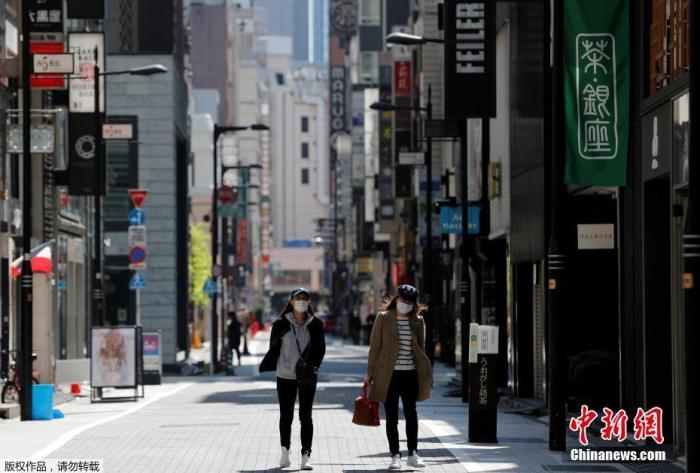China News Service, April 28. According to Kyodo News, the Bank of Japan held a monetary policy meeting on the 27th to finalize overweight and easing policies such as the cancellation of the national debt purchase ceiling, the expansion of corporate bonds and commercial paper (CP) purchase quotas. Bank of Japan Governor Haruhiko Kuroda said that he will strive to be foolproof to support household income and expenditure and corporate capital turnover.
On April 25, local time, in Tokyo, Japan, a lady wearing a mask walked through an empty shopping area.
According to reports, Kuroda explained at a press conference after the meeting that the current state of the Japanese economy "was affected by the expansion of the new coronavirus epidemic, and the severity became worse", so he decided to increase the easing policy.
Regarding the economic prospects, Kuroda said that "the impact of the expansion of the epidemic is expected to gradually ease in the second half of this year," but he also expressed concern that "the uncertainty is extremely strong." Regarding the future operation of monetary policy, he emphasized that "if necessary, he will adopt further monetary easing policies without hesitation."
At the monetary policy meeting on the 27th, the Bank of Japan also decided to implement measures to support household income and expenditure. Lower the threshold for loans to financial institutions that carry out personal lending business such as housing loans. At the same time, it has improved the mechanism that makes it easier for financial institutions to increase corporate financing. Kuroda explained: "(Cash flow) is more severe than during the Lehman crisis. Expansion has been implemented to avoid problems with income and expenditure for businesses and households."
The "Economic and Price Situation Outlook Report" released after the meeting believed that due to the decline in demand caused by the epidemic, Japan's 2020 inflation rate is expected to be negative 0.7% to negative 0.3%. Kuroda emphasized that the inflation rate will turn positive after 2021, and therefore "does not think that deflation will make a comeback." However, the impact of the expansion of the epidemic and the decline in crude oil prices still exist. The inflation rate in 2022 is expected to be 0.4% to 1.0%.

